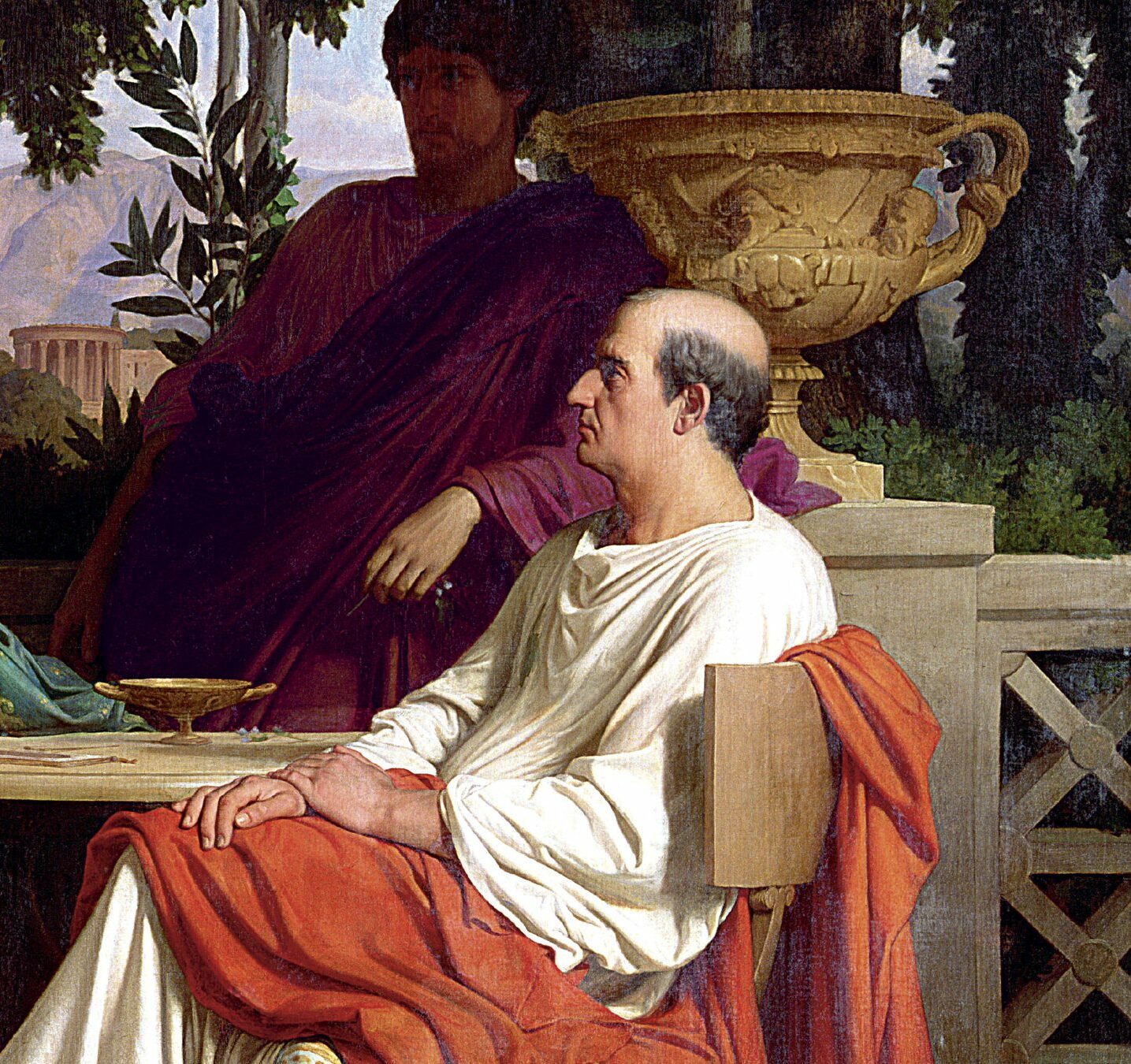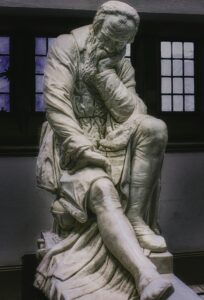
The Faces of patrons
|
Getting your Trinity Audio player ready...
|
If we look in any dictionary for the word "patron" we will find an entry like the following: "Person who sponsors letters or the arts." And if they lavish a lot of data, they will add "Roman nobleman and patrician who lived in the time of Augustus." The treatment of history is petty!
In most educated languages there are the terms “patron” and “patronage”. According to the Hispanic-American Encyclopedic Dictionary (1912, p.655) “Gaius Maecenas […] preferred the monarchy to the republic, and determined his friend to preserve the sovereign power, which he wanted to abdicate […] he used his credit to to incline the emperor to favor the literati.”
The life of Maecenas
We are not aware of the existence in Spanish of a complete and finished biography of the life of the Roman patrician who bequeathed his surname to the act of protecting artists and intellectuals. However, the biographers of his life have spread over time since in 1644 Jean-Louis Guez de Balzac had published within his Various Works a chapter entitled Maecenas, which in the end was the model used by his successors in this endeavor, among them the History of the life of Maecenas, written by Juan Pablo Martyr-Rizo in Madrid in 1626 and the work that Henri Richer published in Paris in 1746 with the title Vie de Maecenas avec des notes historiques et critiques.
We know about Gaius Cilnio Macenas that he was born around the year 60 BC. of JC and died in the year 8 before the Christian era, who was a confidant and close friend of the Roman emperor Augustus and who stood out in life for being a protector of poets of the stature of Horace and Virgil. We also know that he descended from a noble family of Etruscan lineage and that based on his good social position and fortune he was placed in the circle of power at Octavian's court, where he had notable influence, serving as representative of the State on many occasions. when the emperor was absent in Rome.
Mediator and diplomat, he intervened in some intricate processes of negotiations that allowed Caesar's nephew to secure his power. Solano Santos (1999) also reminds us that he accompanied Augustus in the battles of Modena, Philippi, Perugia, Parola and Actium; and was in charge of the provisional government of Italy for three years (Solano Santos, 1999). The sources point to contradictory traits of his personality, for some he is simple and humble by temperament and character, others portray him as an effeminate, resentful, and vengeful libidinous man for the constant humiliations to which his condescending wife subjected him. Maecenas passed down to posterity as a synonym of generosity for the cultivators of letters. He dedicated his fortune to protecting artistic writers, who were, moreover, always willing to acknowledge it. With this gesture, the Roman citizen became considered the first patron in history, beginning with his life the history of patronage in Western art, especially when in the Renaissance his figure was rediscovered and used as a source of inspiration by the nobles and patricians of an Italy that was slowly emerging from the “autumn of the Middle Ages”.
However, little else is known about him. In many aspects the figure of Maecenas
It is an unknown that detracts from the posthumous significance that his name achieved after his passage through history. There are not many references to Maecenas. One of the greatest contributions I have received from Jean-Marié André's book, Mécène: essai de biographie spirituelle, published in Paris 1967, which has allowed me to try to understand, to the extent that it is possible, the psychology of the evergeta according to the references that his contemporaries had towards him, especially those whom he sponsored. But André's work has been discussed in recent years, especially for his attempt to create a psychological profile from remarkably scarce and fragmentary sources, an aspect that makes the objective of trying to create a "biography of the spirit" quite audacious. , as the French writing intended.
Gaius Maecenas (probably born on April 13, 69 BC, died in 8 BC), the same year that Gaius Octavius married Atia, Augustus's parents. In Latin, Gaius Cilnius Maecenas, was a Roman politician, protector of letters, advisor to Augustus, great evergeta of the city of Rome and benefactor of literature and letters, he especially encouraged the Roman poets Sextus Propertius, Virgil and Horace. Tacitus refers to him as Cilcius Maecenas, it being possible that Cilcius was his mother's nomen.
A biography of Maecenas can only be conceived as a story built with fragments, which like small pieces of a mosaic must be attempted to be seen from a distance because only then can the complexity of the whole be appreciated.
A friend and advisor to Augustus, Maecenas was, however, not liked by Agrippa, who did not see in him any of the virtues of the Romans. For the same reason, Maecenas detested Agrippa. Maecenas was a lover of luxury, effeminate and vicious, and did not hold any magistracy at any time, although he was a soldier in his beginnings. For posterity he has left his name as a synonym for the protector of arts and letters, but the truth is that he had a bad fit in the domus Augusta (Augustus was the lover of his wife Terentia) and fell into ostracism years before the disappearance of Agrippa. Despite everything, he provided great services to Augustus and he mourned his death.
It is true, Maecenas was noble from the cradle, but he never wanted to belong to the Senate, in the cursus honorum he always remained on the scale of the so-called Knights, even though due to his power and circle of influences and friends he could be a senator. Among his friends and protégés was Gaius Octavius Turinus (later Augustus), of whom he would be a confidant and advisor from his beginnings in politics (Millar, 1984). Maecenas was always a friend of Octavian, and when his uncle Julius Caesar was assassinated in 44 BC, he put himself at his service to seize power in Rome. “Caius Caesar – that is what Cicero always calls him, a young man, or rather almost a child, but one of incredible, almost as if it were, divine intelligence and courage…”, he inherited his political assets and his name from his famous uncle. Although Octavio hesitated at first to accept the legacy and the name, he soon assumed it fully. At the age of eighteen he stopped being Gaius Octavius and became Gaius Julius Caesar. Tradition expected - adds Woldsworthy (2014) - that he would retain a trace of his old name and add Octavian to the formula. He never did, although his enemies sometimes called him that to highlight that his royal family lacked luster. Despite this essential detail, in order not to confuse the reader, we will prefer to continue calling him Octavio as modern historiography usually assumes.
Octavian ruled between 43 BC and 14 AD at the peak of power of what would be the very successful experience of the Roman Empire, which extended between 27 BC and 476 AD Nieto Sánchez (2013) says that the political work of Octavio is summed up in his person, but it was possible thanks to the efforts of a notable team of collaborators, among whom stood out politicians of the stature of Agrippa and Maecenas, historians such as Titus Livy, and intellectuals such as Maecenas himself, Horace and Virgil. “In short, by surrounding himself with men of letters and the arts, Octavio laid the foundations so that in the future his era could be seen as the Golden Age of Augustus “seculum aureum Augustí)” (Nieto Sánchez, 2013:78) .







